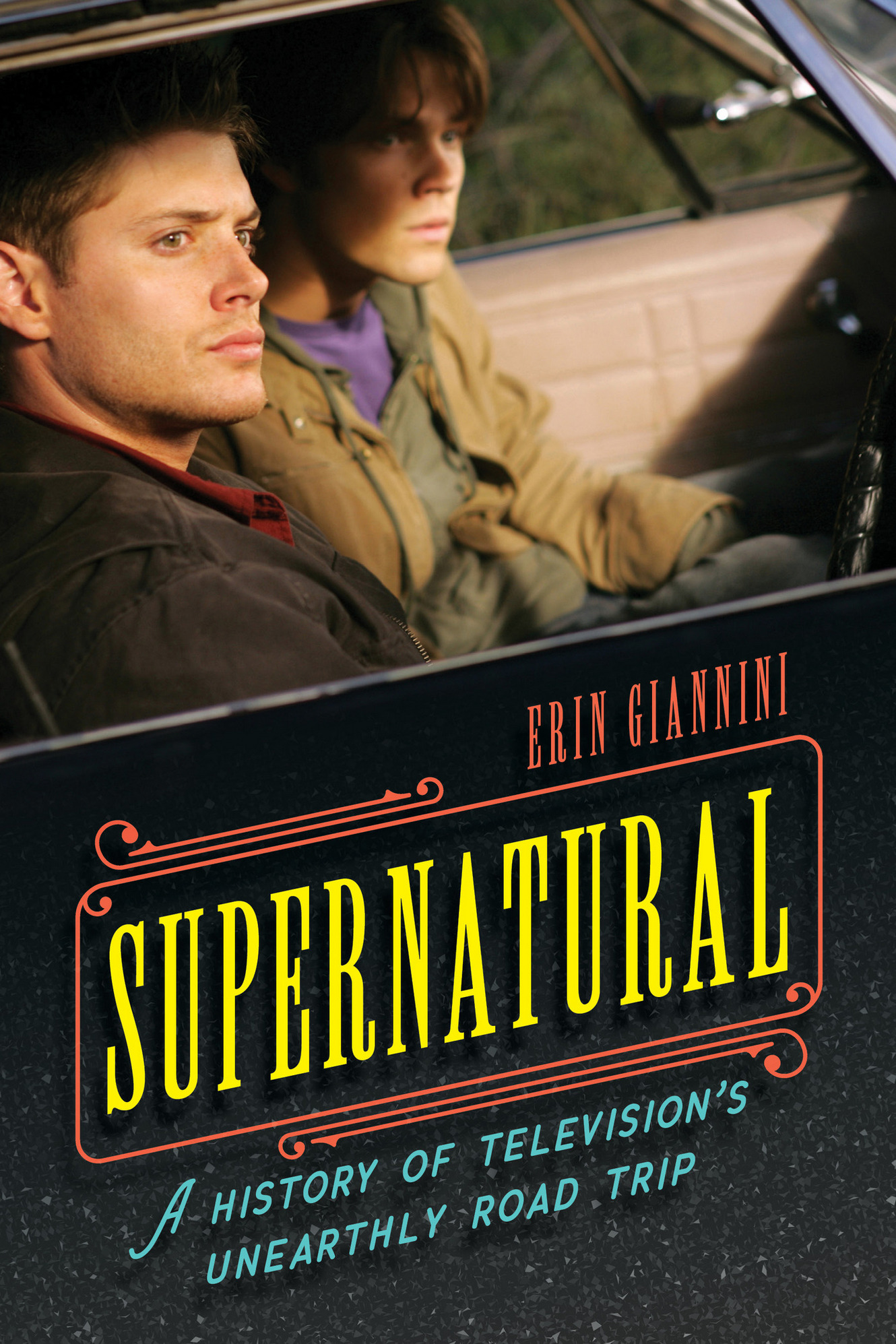Supernatural
A History of Televisions Unearthly Road Trip
Erin Giannini
ROWMAN & LITTLEFIELD
Lanham Boulder New York London
Published by Rowman & Littlefield
An imprint of The Rowman & Littlefield Publishing Group, Inc.
4501 Forbes Boulevard, Suite 200, Lanham, Maryland 20706
www.rowman.com
6 Tinworth Street, London SE11 5AL, United Kingdom
Copyright 2021 by The Rowman & Littlefield Publishing Group, Inc.
All rights reserved. No part of this book may be reproduced in any form or by any electronic or mechanical means, including information storage and retrieval systems, without written permission from the publisher, except by a reviewer who may quote passages in a review.
British Library Cataloguing in Publication Information Available
Library of Congress Cataloging-in-Publication Data
Names: Giannini, Erin, 1974 author.
Title: Supernatural : a history of televisions unearthly road trip / Erin Giannini.
Description: Lanham : Rowman & Littlefield, [2021] | Includes bibliographical references and index. | Summary: Supernatural: A History of Televisions Unearthly Road Trip is a captivating examination of the cultural phenomenon that is Supernatural, the longest running genre series in US television history. It examines the shows predecessors, characters, major storylines, devoted fanbase, and how it has influenced other series that followed Provided by publisher.
Identifiers: LCCN 2021011366 | ISBN 9781538134498 (cloth) | ISBN 9781538134504 (epub)
Subjects: LCSH: Supernatural (Television program : 20052020) | Horror television programsHistory and criticism. | Monster television programsHistory and criticism. | Supernatural on television.
Classification: LCC PN1992.77.S84 G53 2021 | DDC 791.45/72dc23
LC record available at https://lccn.loc.gov/2021011366
 TM The paper used in this publication meets the minimum requirements of American National Standard for Information Sciences Permanence of Paper for Printed Library Materials, ANSI/NISO Z39.48-1992.
TM The paper used in this publication meets the minimum requirements of American National Standard for Information Sciences Permanence of Paper for Printed Library Materials, ANSI/NISO Z39.48-1992.
For my niece Chelsea Lewis,
fated to be awesome since the day she was born
Introduction
The Family Business: Supernaturals Unlikely Success
While 2005 did not appear to be a significant media yearit didnt feature the U.S. debut of television (1928), the introduction of sound in film (1929), or even the premiere of HBO on cable TV (1972), there was a surprising convergence of pop-culture media debuts and platforms that ended up being widely influential, albeit not necessarily in predictable ways. YouTube appeared in February; its first video was uploaded in April. Doctor Who, canceled in 1989 after 26 consecutive seasons, regenerated back to the BBC in March under showrunner Russell T. Davies (Queer as Folk [19992000]; The Second Coming [2003]). Stephenie Meyers Twilight, the young-adult book (and later film) series with as many haters as fans, appeared in October, reaching best-seller status within weeks despite mixed reviews. A month earlier, the first episode of the series Supernatural debuted on the WB television netlet.
The importance of YouTube on the way viewers consume and interact with media could be a book of its own, from its conception as a dating site and purchase by Google to its creation of original programming such as Cobra Kai (2018present) and expansion into music and gaming. At first glance, however, most of these other events might not seem important. A British sci-fi series rebooted 16 years after it went off the air might be important to its fans, but few outside of that group. And yet one can look at Doctor Who (or NuWho, as some call it to differentiate it from the original series) as the opening shot in the current mania for rebooting classic (or at least older) series, as well as the ascendency of the fan showrunner; both Davies and later showrunner Steven Moffat both helped propel the series back to television because of their love of classic Who. Indeed, in Moffats earlier series Coupling, comic-book store owner Oliver Morris (Richard Mylan) not only fills his shop with props familiar to Who viewers (e.g., a giant reproduction of a Dalek), but wears a sweater emblazoned with Bring Back Doctor Who on a date (Bed Time, 4.3). While Coupling character Steve Taylor is the most obvious Moffat stand-in, Oliver seems more representative of Moffats fannishness. In a marked departure from the classic version, NuWhoparticularly during the Davies and Moffat erasadopted the same season-arc structure as American sci-fi/fantasy series, and enjoyed more global distribution and success than in the past. The publication of yet another vampire novel would seem barely worth a yawn, and yet Twilight not only became a best seller and multimillion-dollar film and merchandising franchise, but was one of the few times that a primarily female-driven fandom made such a massive financial and social impact (one that is ongoing; the release of Midnight Sun, a retelling of the first book by the male half of the series romantic pair, sold nearly a million copies its first week of release in August 2020).
Supernatural may be the strangest of all. Premiering during what would be the WBs final year on air, as well as airing an early season during the 20072008 Writers Guild of America strike, its likeliest fate was as an entry on a list of promising genre series canceled too soon. Creator Eric Kripke had spent more than a decade trying to get the series made, honing and shifting the idea, before it was eventually picked up by Warner Brothers. While it had elements of fantasy and melodrama, its primary genre was one that had always been difficult for television: horror. Instead, as of its eleventh season (2015), it became the longest-running genre series in American television history, and was renewed for an unprecedented fifteenth (and final) season in February 2019. While its final season was delayed due to the COVID-19 pandemic shutting down production before filming had been completed, it was granted what other series, such as Foxs Empire (20152020), were not: a chance to return to filming and complete the story. The final seven episodes aired as part of the Fall 2020 television season.
Supernatural shouldnt have worked. A series about two brothers who travel around in a muscle car fighting monsters to the tune of classic rock, dressed like Pearl Jam roadies in flannel and worn-out jeans? Supporting themselves through pool hustling and credit card fraud, staying in run-down motels? Using an abundance of costly night shooting and content that pushed the limits of allowable gore on TV? It would be lucky to last a single season. A pre-airing review of the series called it a Buffy wanna-be that would be lucky to gain half a season. On February 7, 2019, however, Supernatural aired its 300th episode, an achievement usually reserved for soaps, procedurals, or news series. In prime time, sitcoms (The Simpsons [1989present]; The Adventures ofOzzie and Harriet [19521966]), procedurals (NCIS [2003present]; Law & Order [19902010]), or series dating back to the 1950s (Lassie [19541973]; Gunsmoke [19551975]) are usually the only TV shows that can rack up such impressive episode counts. With the notable exception of Doctor Who (862 total episodes in the classic and new series), genre series tend to have a shorter shelf life; on U.S. television, only
Next page
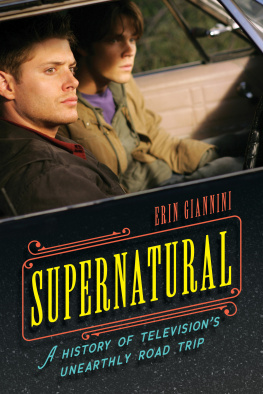


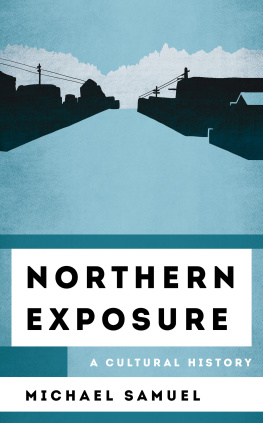
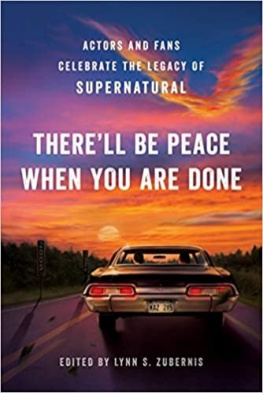
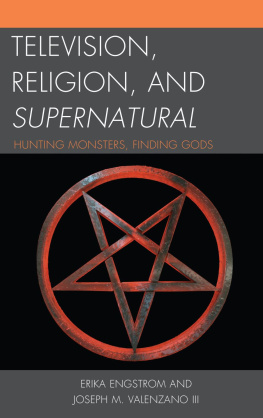


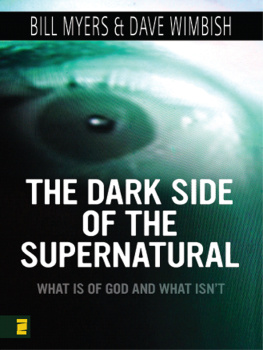

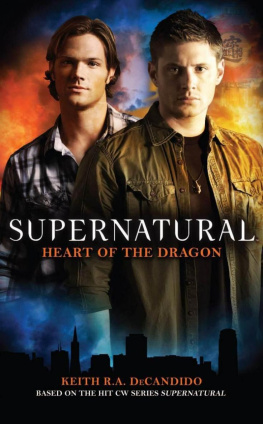
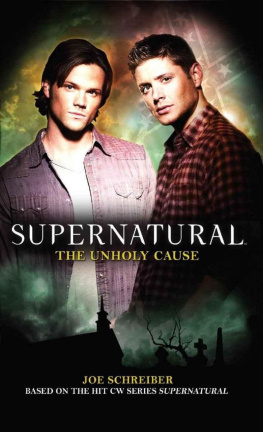
 TM The paper used in this publication meets the minimum requirements of American National Standard for Information Sciences Permanence of Paper for Printed Library Materials, ANSI/NISO Z39.48-1992.
TM The paper used in this publication meets the minimum requirements of American National Standard for Information Sciences Permanence of Paper for Printed Library Materials, ANSI/NISO Z39.48-1992.